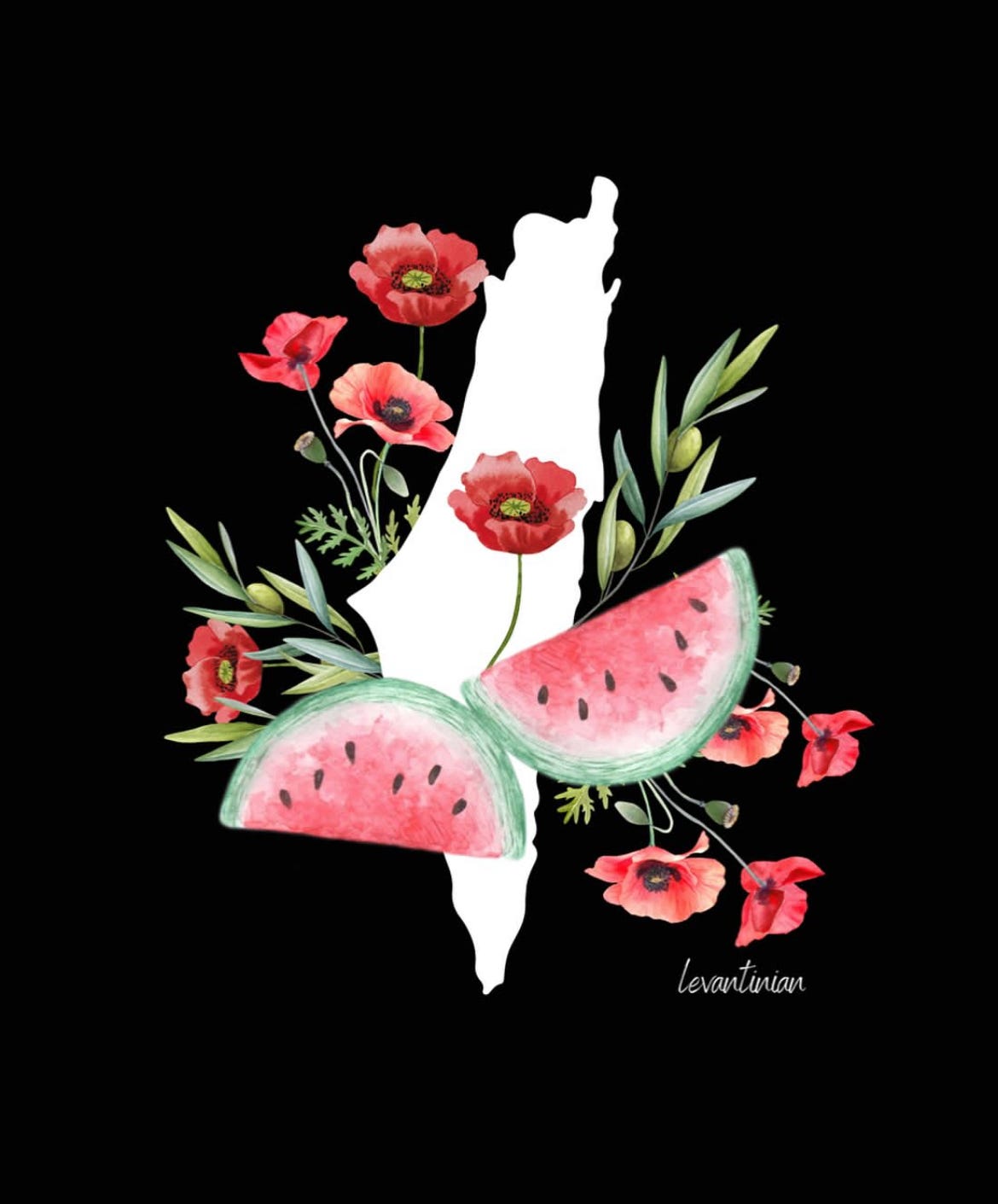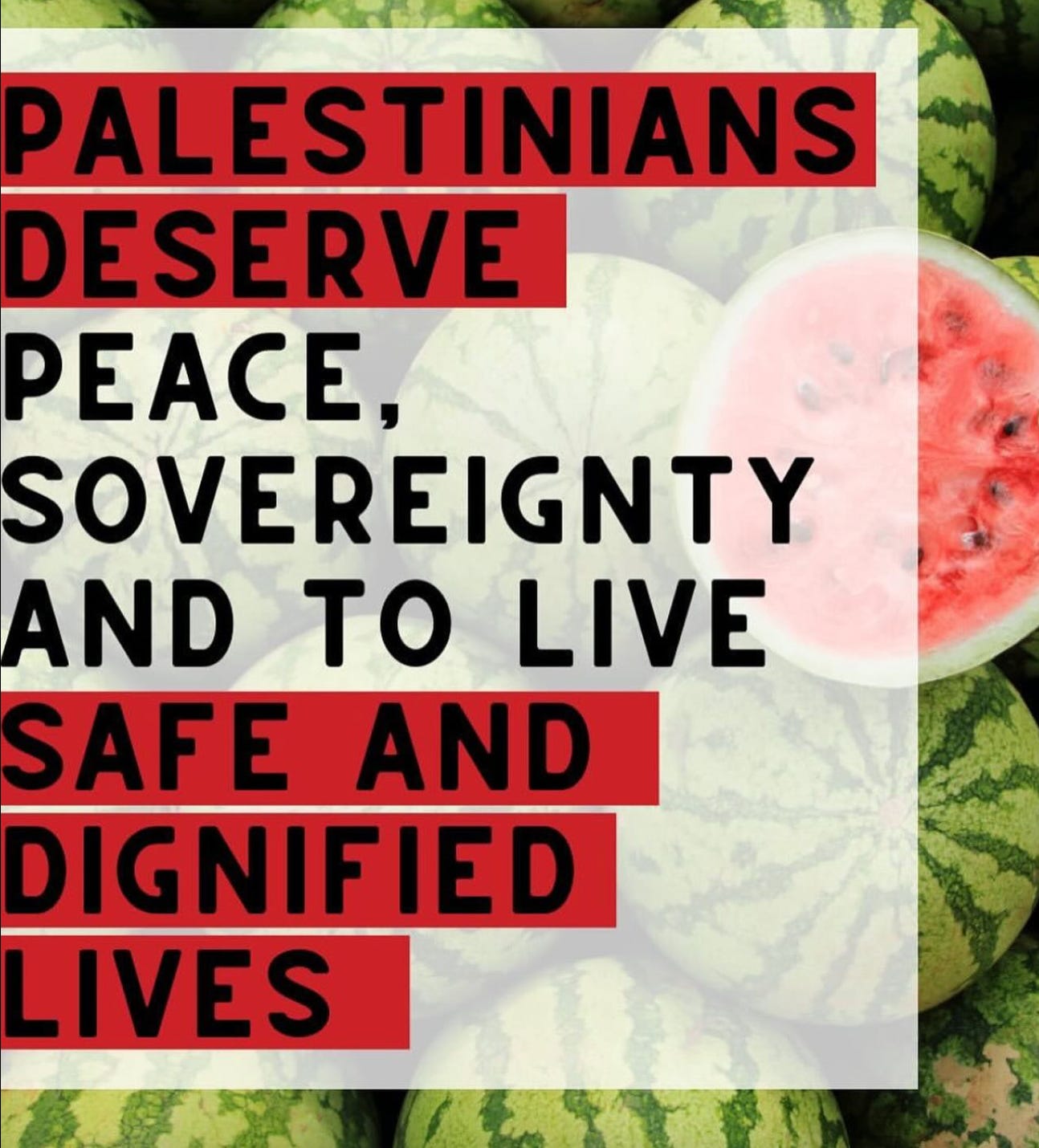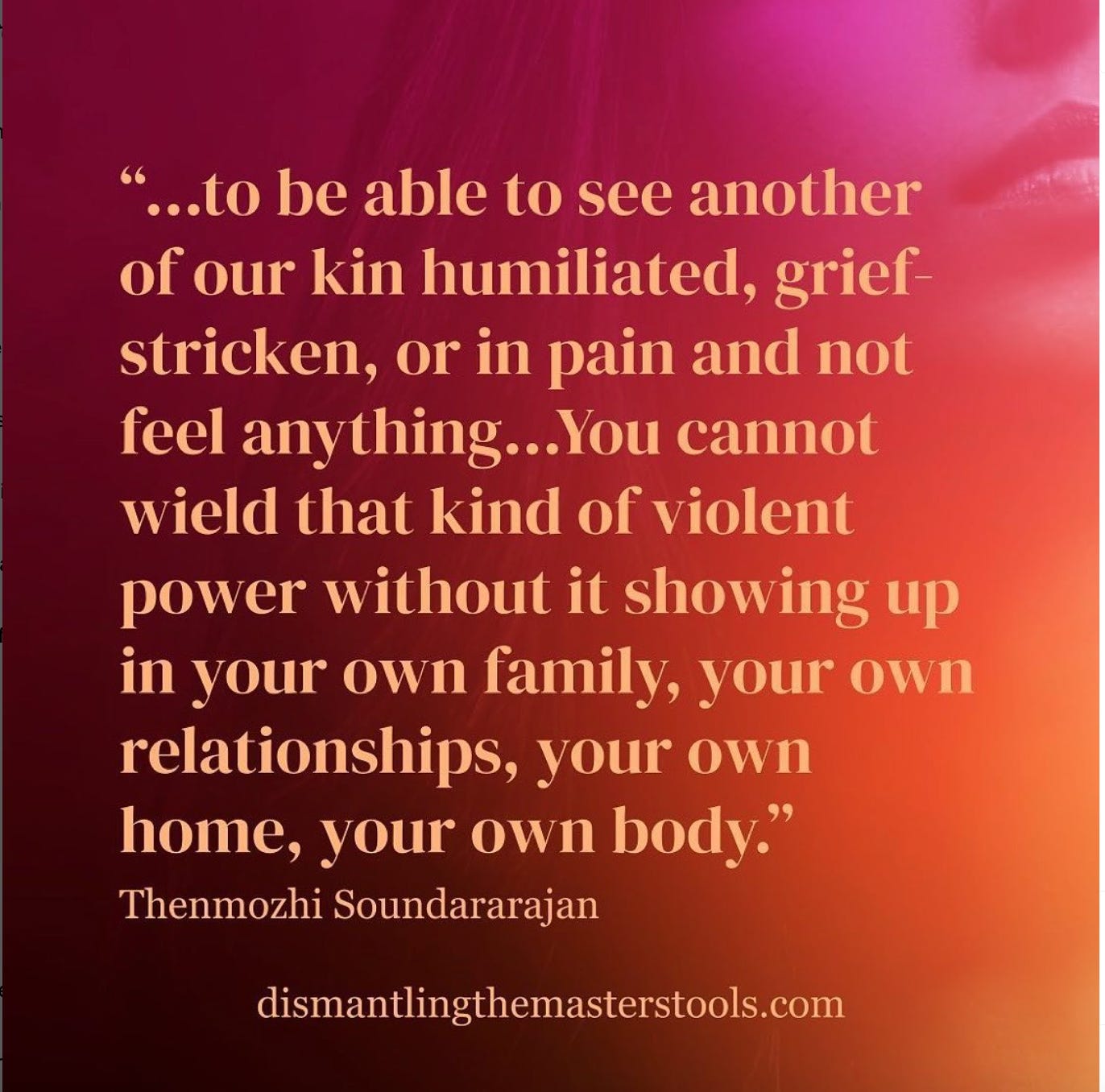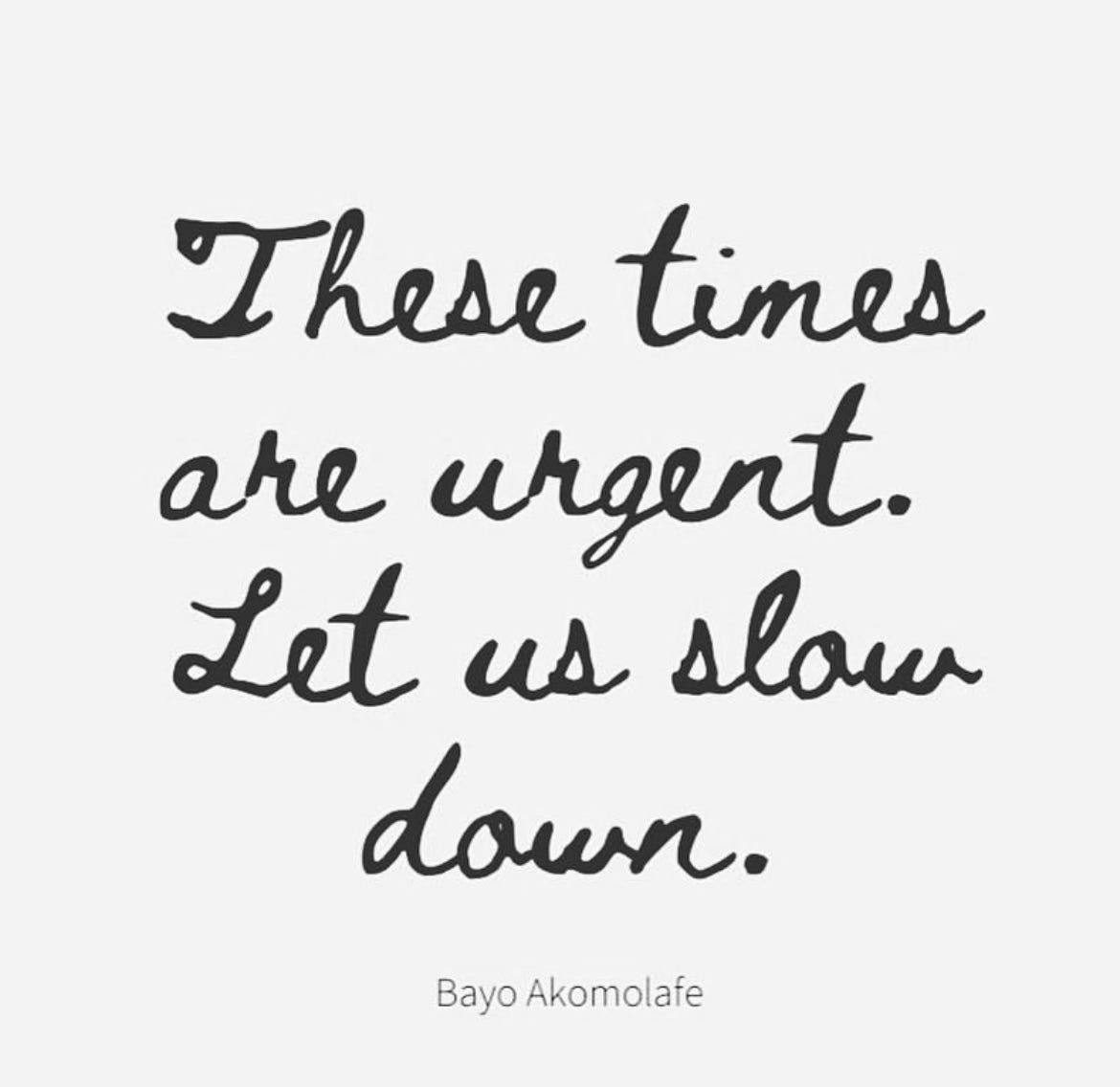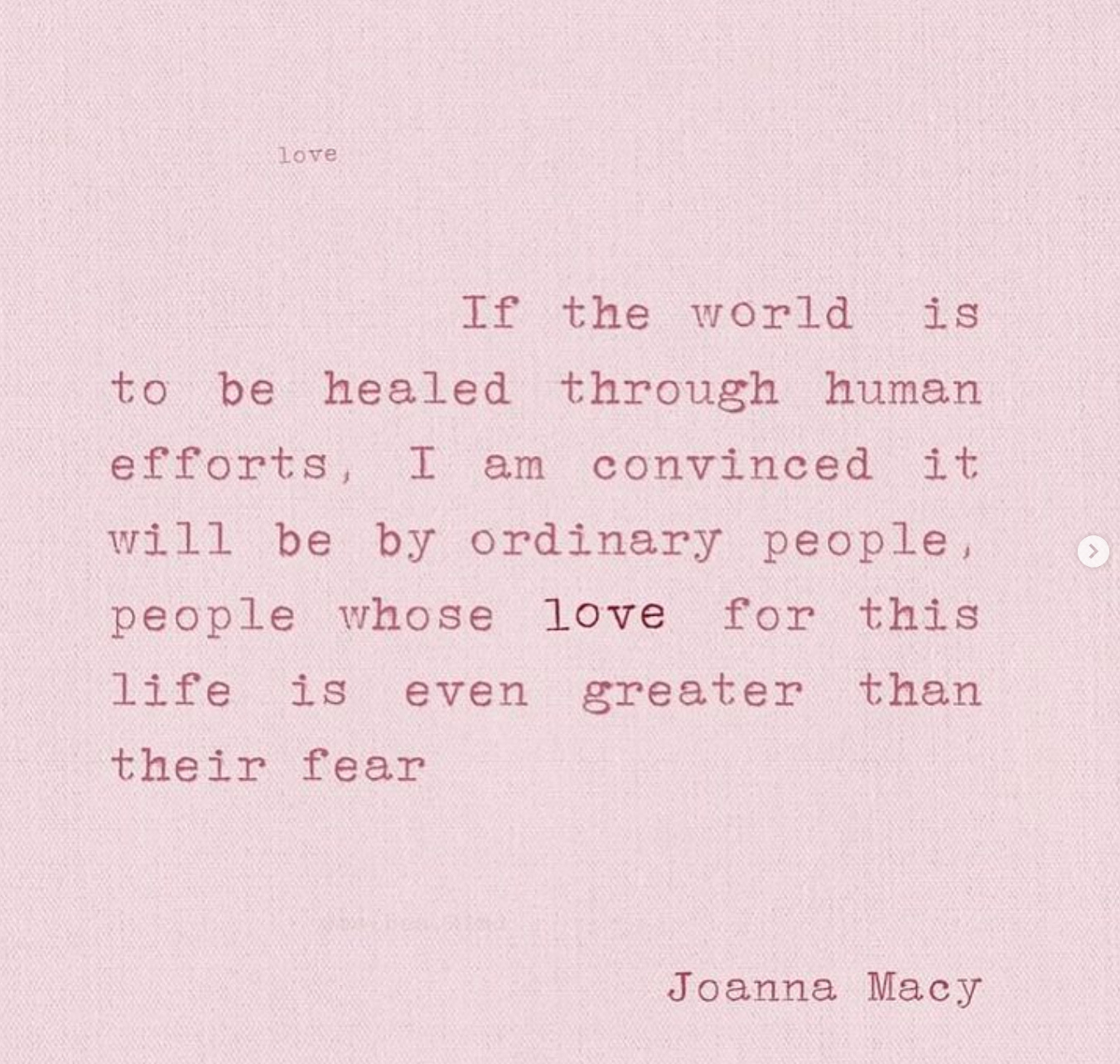|
 |
Thanks for subscribing to WELLREAD. For the last 6+ years we’ve been providing folks with the need to know (NTK) news, calls to actions and resources for how to stay engaged and resourced along the way. But now, we’ve added an option to “upgrade to paid” to help sustain our work. While we will never put our content behind a pay wall, we depend on the support of our community to keep us going. 💛
2024 is coming in hot. Can you feel it?
After almost 100 days of violence, displacement and dehumanization against the Palestinian people, the world is finally waking up to the horrific scale of destruction and devastation. South Africa’s case in the International Court of Justice (ICJ) is echoing what the people have been saying for months: that there is no justification for the violation of human life that has been enacted on the Palestinian people for over 75 years.
Over the next few days you will hear lots of legal analysis about evidence and burden of proof. But we must remember that we, witnesses, are the proof. Hala Alyan reminds us:
To witness is to steward the truth. It is using the self-what it sees, what it knows-as evidence. This is how we build our capacity in this moment: by devoting ourselves to truth seeking. It is to stay: I will witness and I will be the proof. I will consider myself evidence of what is happening. I will remember what others have endured. I will speak of it. I will let it change me.
What is happening right now is the culmination of millions of people around the world marching, resisting, emailing, calling, posting, boycotting, letting our hearts break and putting our bodies on the line for collective liberation. We are the ones we have been waiting for. And we must not stop.
Malcolm X reminds us that “we are not outnumbered, we’ve are out-organized.”
The time for justice and liberation is now. And we must move together.
Kerri (she/her)
Art by @levantinian
NTK (need to know)
South Africa’s genocide case is a devastating indictment of Israel’s war on gaza. Key takeaways from Day one of the International Court of Justice hearing.
This genocide is being live-streamed. We can’t say we didn’t know. For as long as we live we’ll never be able to say we didn’t know.
There is no ecological justice in a world in which Palestinians are bombed, starved, displaced from their lands, and have no freedom of movement or agency over their lives. The path to ecological justice runs through a Free Palestine
When tragedy is everywhere, what should you do? Nadia Bolz-Weber on how to keep caring amid endless crises.
Thwarting Trump’s return to the White House would not be the end of our fascistic problems. Organizing thoughts on why antifascism means refusing to abandon.
Solidarity
This week, the International Court of Justice (ICJ) is hearing a case filed by South Africa charging Israel with genocide (check out this breakdown of the case from @inclusivetherapists). While this landmark case sends a powerful message of global solidarity, it does not guarantee a ceasefire or accountability. That’s why our actions matter. As we continue to bear witness to the ongoing genocide and dehumanization of the Palestinian people (and beyond) we must continue to get loud, amplify the voices on the ground, organize and act in solidarity for a permanent ceasefire and end to the occupation.
➡️ Call and email your elected officials. Demand an immediate ceasefire and end to the occupation/forced displacement and an end to the US funding of military aid.
➡️ Hit the streets. Join the March on Washington for Gaza global solidarity event taking place January 13th. .
➡️ Get Educated. Haymarket created a collective of essays providing important grounding for the urgent discussions taking place across the Palestine solidarity movement. Download the FREE E-book.
➡️ Practice Decolonization. It is important to understand that the occupation and genocide in the Middle East is a part of a larger history of colonization and imperialism that is not just around us but within us. Check out this free guided journal workbook on decolonizing practice from Dr. Rosales Mesa.
Art by @malakmatterart
Digging Deeper
Patterns of dominance are not just playing out on a macro level (colonization, exploitation, war)...they are likely playing out at home and in our most intimate relationships (family, work, friends, etc). Or worse, they are used to justify violence...
Sociologist and sexual violence researcher Dr. Nicole Bedera says "victims are not allowed to defend themselves from the abuser,” Bedera told Prism. When they do, they’re “cast as the aggressor, especially by the criminal justice system,” and often face charges for acts of self-defense. “Aggressors will try to make themselves look like the victim, to make any violence from them ‘self-defense,’ and any violence from their victim into an act of aggression. There’s only one group that’s permitted to be violent and aggressive.” This, Bedera says, is mirrored to a tee in Western conceptions of Israel and Palestine. (Source: Prism)
“It therefore takes a violent severing inside a human to be able to see another of our kin humiliated, grief-stricken, or in pain and not feel anything, to carry on as if that were normal.
You cannot wield that kind of violent power without it showing up in your own family, your own relationships, your own home, your own body.” - Thenmozhi Soundarajan, 𝘛𝘩𝘦 𝘛𝘳𝘢𝘶𝘮𝘢 𝘰𝘧 𝘊𝘢𝘴𝘵𝘦
Which begs the question...how have we internalized dominant behavior? How is it shaping how we respond to global violence and genocide? How is it shaking how we respond to each other?
Art: @dismantlingthemasterstools
Nourishment
I love this new moon reflection by Julie Quiroz on finding balance between the impulse to do more and the wisdom of slowing down. In it she says: “Slowing down is about creating space for awareness, connection, creativity. It’s about re-centering the practices and worldview of abundance and relationship held by present day Indigenous cultures and by Indigenous ancestors to which all of us have lineage. It's about undoing what has brought our world into so much pain.” Some reflection questions for your journey:
Where in your life can you slow down?
What needs space and awareness right now?
How can you practicing unlearning internalizations of productivity and perfectionism?
What might showing up more slowly look like? How might it enable you to do something different?
We-ness
Every email. Every protest. Every post. Every small action has made a difference. We are a part of our history and we are a part of our future. Keep going.
Thanks for subscribing to WELLREAD. For the last six years we’ve been providing folks with the need to know (NTK) news, calls to actions and resources for how to stay engaged and resourced along the way. But now, we’ve added an option to “upgrade to paid” to help sustain our work. While we will never put our content behind a pay wall, we depend on the support of our community to keep us going. 💛
You're currently a free subscriber to WELLREAD. For the full experience, upgrade your subscription.
